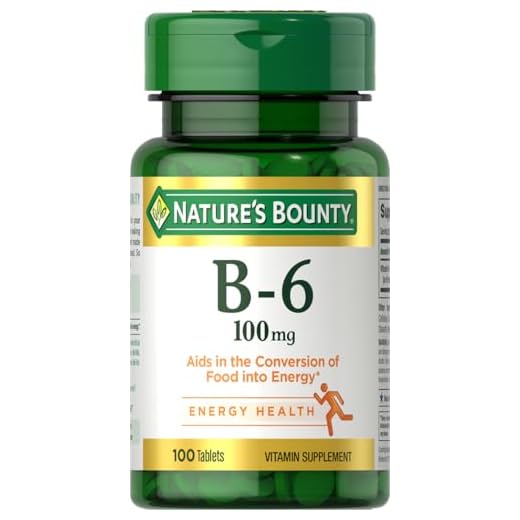







If you're experiencing PMS symptoms, Vitamin B6 can assist in managing them effectively. Vitamin B6 plays a pivotal role in regulating hormones and supporting neurotransmitter function, aiding in serotonin production. This can help alleviate mood swings, fatigue, and promote emotional well-being. Studies suggest its efficacy in reducing symptoms like irritability, depression, and anxiety by maintaining hormonal balance. Consult with a healthcare provider for personalized advice on the appropriate dosage, typically ranging from 50 to 100 milligrams daily. Be mindful of potential side effects if exceeding recommended doses. Vitamin B6 could be your key to PMS symptom management.
Key Takeaways
- Vitamin B6 regulates hormones, aiding in PMS symptom management.
- Supports neurotransmitter function, alleviating mood swings and fatigue.
- Research suggests Vitamin B6 helps in reducing depression and anxiety.
- Consult healthcare provider for personalized dosage and advice.
- Understand potential side effects and limitations of Vitamin B6 for PMS.
The Role of Vitamin B6 in PMS
Vitamin B6 plays an essential role in managing PMS symptoms by regulating hormonal fluctuations and supporting neurotransmitter function. When it comes to pivotal balance, this vitamin is vital as it helps in the production of neurotransmitters like serotonin, which can affect mood and even pain perception during PMS. Including dietary supplements rich in Vitamin B6 can potentially alleviate some of the symptoms associated with PMS by positively impacting neurotransmitter levels in the brain. Maintaining adequate levels of this vitamin through supplementation can aid in reducing the severity of mood swings, fatigue, and irritability commonly experienced during this time. Additionally, Vitamin B6 is involved in the synthesis of neurotransmitters like dopamine and gamma-aminobutyric acid (GABA), which play a role in emotional well-being and stress management. By supporting these functions, Vitamin B6 contributes to a more balanced emotional state during PMS.
Symptoms of PMS and Vitamin B6
During the premenstrual phase, symptoms associated with PMS can heavily impact your daily life. These symptoms can include mood swings, irritability, bloating, breast tenderness, fatigue, and food cravings. Vitamin B6, also known as pyridoxine, plays an important role in hormone balance, which can influence the severity of PMS symptoms. Research suggests that vitamin B6 may help alleviate symptoms like depression, anxiety, and irritability due to its involvement in neurotransmitter synthesis.
Incorporating vitamin B6 through nutritional therapy can potentially help in managing PMS symptoms. Foods rich in vitamin B6 include chickpeas, tuna, salmon, chicken, and fortified cereals. However, it is essential to consult with a healthcare provider before starting any supplementation to make sure it is safe and appropriate for your individual needs.
Studies on Vitamin B6 Efficacy

Several studies have explored the effectiveness of vitamin B6 in managing PMS symptoms. Clinical trials have shown promising results regarding the use of vitamin B6 in alleviating premenstrual syndrome symptoms. Vitamin B6 plays an important role in the synthesis of neurotransmitters like serotonin, which can affect mood and emotional well-being. By influencing neurotransmitter levels, vitamin B6 may help regulate mood swings and reduce anxiety and irritability commonly experienced during PMS.
Moreover, vitamin B6 is involved in maintaining hormonal balance, which is essential for managing PMS symptoms. Hormonal fluctuations, particularly of estrogen and progesterone, are known to contribute to the physical and emotional changes associated with PMS. Studies suggest that vitamin B6 supplementation can help stabilize these hormonal shifts, leading to a reduction in symptoms such as bloating, breast tenderness, and fatigue.
Recommended Vitamin B6 Dosage
To determine the appropriate dosage of vitamin B6 for managing PMS symptoms, consult with a healthcare provider knowledgeable in women's health. Vitamin B6 plays an important role in hormonal balance, which can influence PMS symptoms. When considering B6 as a nutritional supplement for PMS management, it is important to follow expert recommendations tailored to individual needs.
Healthcare providers may suggest different dosages based on factors such as age, overall health, and specific PMS symptoms. Generally, for PMS relief, the recommended daily dosage of vitamin B6 typically ranges from 50 to 100 milligrams. However, dosages exceeding 100 milligrams daily can lead to potential side effects.
It is essential to avoid self-prescribing vitamin B6 for PMS and instead seek guidance from a healthcare professional. They can assess your hormonal balance, consider your nutritional needs, and recommend a suitable dosage tailored to support your PMS symptoms effectively. Consulting a healthcare provider guarantees that you receive personalized advice that maximizes the benefits of vitamin B6 while minimizing any risks.
Potential Side Effects of Vitamin B6
Potential side effects of vitamin B6 may include nausea and sensory neuropathy. While vitamin B6 is generally considered important when taken within recommended dosages, exceeding the upper limit can lead to adverse effects. Nausea is among the most commonly reported side effects of vitamin B6 supplementation. In some cases, individuals may also experience sensory neuropathy, a condition characterized by nerve damage that can cause numbness, tingling, and pain in the extremities.
It's essential to be careful with vitamin B6 intake, as excessive amounts can have negative consequences. Although vitamin B6 offers various benefits such as potentially assisting in managing PMS symptoms, it is critical to weigh these advantages against the risks. When using vitamin B6 for PMS treatment, it's important to stay within the recommended dosage range to minimize the likelihood of experiencing adverse effects. Understanding the potential side effects of vitamin B6 is crucial in making informed decisions about its use for managing PMS symptoms and being aware of the limitations in its role as a standalone treatment for PMS.
Conclusion: Vitamin B6 for PMS
Considering the potential side effects of vitamin B6, it is important to evaluate its effectiveness in managing PMS symptoms. While some studies suggest that vitamin B6 may help alleviate certain PMS symptoms, the evidence is not definitive. It is essential to consult with a healthcare provider before starting any dietary supplements, including vitamin B6, to address PMS.
Vitamin B6 plays a role in the synthesis of neurotransmitters like serotonin, which can influence mood and alleviate symptoms such as irritability and depression often associated with PMS. Additionally, it is involved in the regulation of hormonal balance, which is vital for managing menstrual symptoms. However, the effectiveness of vitamin B6 in relieving PMS symptoms varies among individuals, and more research is needed to establish clear guidelines for its use.



